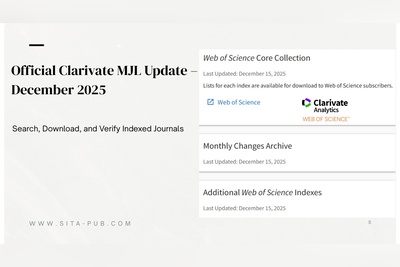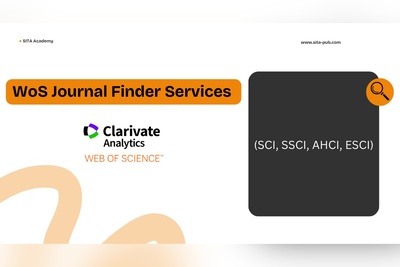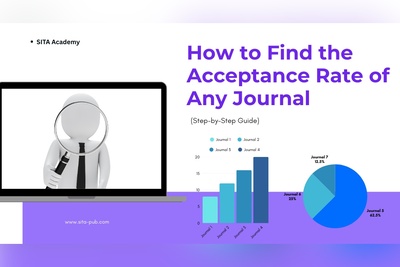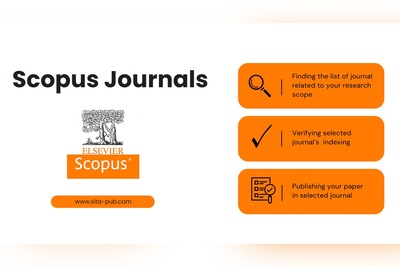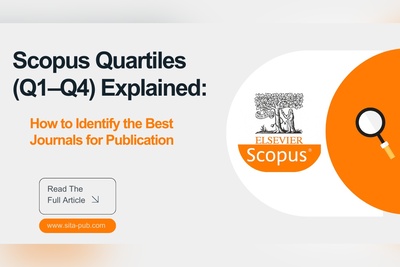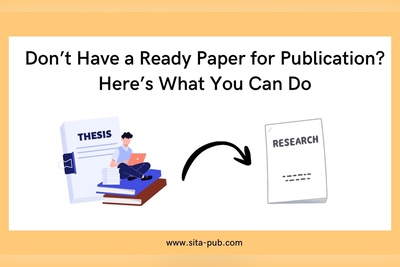Get Your Paper Published Faster: Tips, Fees, and Journal Lists
Get your research published faster in Scopus, Web of Science, and PubMed journals. Learn tips for journal selection, formatting, submission, fees, and access to credible journal lists.
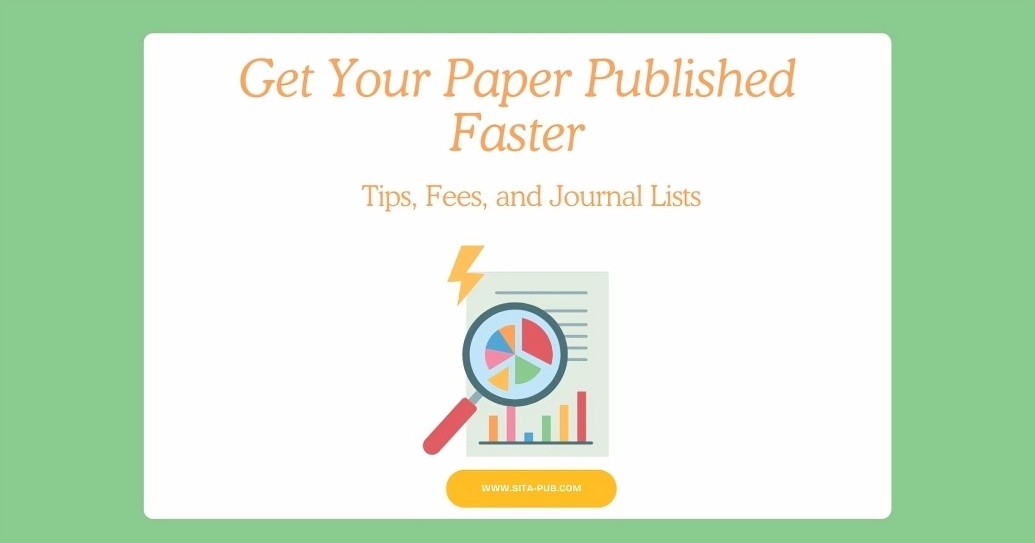
Publishing your research in international journals is a critical step for academic recognition, career advancement, and contributing to your field. Every researcher dreams of getting their paper accepted quickly in a reputable journal, especially indexed in Scopus, Web of Science (SCI, SCIE, AHCI, ESCI), or PubMed, and at the lowest possible fees.
This article provides practical guidance on how to accelerate the publication process, including tips for journal selection, formatting, submission, an overview of fees, and how to access credible journal lists.
Why Fast Publication Matters
Time is often a crucial factor for researchers. Graduate students, postdocs, and academic professionals frequently face deadlines for:
Applying for grants or scholarships
Academic promotions or tenure reviews
Conference submissions
Building a strong publication record
Because of this, fast-track publication options and careful planning can make a significant difference. However, rushing without strategy can also increase the risk of rejection or extra costs.
How to Get Your Paper Published Faster
1. Journal Selection Tips
Selecting the right journal is the single most important step to speed up your publication. Here are key tips:
Check scope and aim: Make sure your research aligns with the journal’s focus. Submitting to irrelevant journals is a common reason for delays or outright rejection.
Impact factor and indexing: Journals indexed in Scopus or Web of Science (SCI, SCIE, AHCI, ESCI) are preferred by universities and research institutions. Higher-ranked journals may have longer review times but offer greater academic recognition.
Fast-track or rapid publication options: Some journals provide expedited review and publication for an extra fee. Identify journals offering such services if speed is your priority.
Review acceptance rates: Journals with higher acceptance rates and shorter review cycles can significantly reduce waiting time.
University approval: Always verify with your university or institution that the chosen journal is acceptable for academic or professional purposes.
2. Formatting Your Paper
Proper formatting can reduce unnecessary delays caused by technical rejections. Tips include:
Follow journal-specific guidelines precisely (font, margins, reference style).
Use professional language editing services if your paper is not in English. Journals may reject papers with poor grammar or unclear writing.
Ensure figures, tables, and supplementary materials are submitted in the required formats.
Include a clear abstract and keywords, as these affect how quickly your paper gets reviewed and discovered online.
3. Submission Tips
Submitting correctly can avoid unnecessary delays:
Prepare all required files in advance (manuscript, cover letter, figures, supplementary info).
Use the journal’s online submission portal carefully and double-check all entries.
Respond promptly to editor or reviewer queries to maintain momentum in the review process.
Consider pre-submission inquiries to see if your paper fits the journal scope.
Pre-submission Checklist Table
Pre-Submission Task | Done ✔ |
|---|---|
Identify 2–3 target journals | |
Check journal scope and aim | |
Review author guidelines / formatting requirements | |
Prepare title page with correct affiliation and corresponding author info | |
Prepare abstract and keywords according to journal style | |
Ensure references are formatted correctly | |
Check figures and tables for clarity and journal specifications | |
Run plagiarism check / similarity report | |
Proofread manuscript for grammar and clarity | |
Prepare cover letter for submission | |
Draft pre-submission inquiry email (if required) | |
Verify compliance with ethical guidelines / IRB approval | |
Confirm funding or conflict of interest statements | |
Send pre-submission inquiry (optional) | |
Await editor response |
Fees for Getting Your Paper Published Faster
Normal Publication Fees
Publication fees vary widely depending on the journal’s indexing and access model:
Scopus and WoS indexed journals: Typical fees for open-access journals range from €500 to €2,000, while prestigious high-impact journals can charge €3,000 to €6,000. Closed-access journals usually do not charge publication fees but may require optional fees for color figures, extra pages, or supplementary materials.
PubMed journals: Fees generally range from $200 to $1,000, depending on journal policy.
General fees: Many journals offer fee waivers or discounts for students, early-career researchers, or researchers from low-income countries.
Extra Fees for Fast-Track Publication
If you want your paper reviewed and published faster, most journals charge expedited or fast-track fees:
Fast-track fees can range from €200 to €1,500, depending on journal ranking and indexing.
Higher impact journals (SCI/SCIE) tend to have higher fast-track fees, sometimes exceeding $1,000.
Always confirm all fees and expected publication timeline with the journal before payment.
Lists of Journals for Getting Your Paper Published Faster
Instead of providing a generic list of journals, we emphasize the importance of matching your paper with credible journals. Here’s how you can access reliable options:
1. Official Databases
Scopus: Provides journal metrics, indexing, and publication info.
Web of Science: Offers impact factor, indexing, and coverage details.
PubMed: For biomedical and life sciences research.
2. Free Online Tools
Tools like Journal Finder (Elsevier) or Springer Journal Suggester can help identify journals relevant to your paper.
Always cross-check journals against official databases to confirm indexing and credibility.
3. Journal Matching at Research Centers
Research centers and academic support services can help match your manuscript to journals with the highest acceptance rates and fastest processing times.
Verification with your university or institution is critical to ensure eligibility for academic recognition.
Tips for Fast Journal Access
Prepare your manuscript in advance, including figures, tables, and references.
Identify 2–3 target journals before submission to reduce decision delays.
Consider journals offering pre-submission inquiry or fast-track options.
Keep communication professional and respond promptly to reviewer/editor queries.
Journal Recommendation Services at SITA Academy
At SITA Academy, we offer a free journal recommendation service for researchers:
We match your paper with journals that offer the highest acceptance rates in your field.
We provide full details regarding fees, expected publication timelines, and journal policies.
Our team helps you identify journals with fast-track options while ensuring credibility and compliance with your university requirements.
How it works:
Share your manuscript with us. (Below you can find our contact channels)
Our experts review it to determine which journals are most suitable.
We provide a detailed journal list, including fees, acceptance rate, and estimated publication timeline.
Once you confirm your choice, we guide you through submission, formatting, and communication with the journal.
With SITA Academy, your research has the best chance to be published quickly, efficiently, and in reputable international journals.
Conclusion
Getting your research published faster in international journals requires planning, careful journal selection, proper formatting, and awareness of fees. While fast-track options can expedite the process, success also depends on submitting your paper to the right journal and following submission guidelines closely.
By leveraging official databases, online journal tools, and professional support services, you can maximize your chances of rapid publication while minimizing unnecessary costs or delays.
Verified Contact Channels
If you have any questions, inquiries, or would like to learn more about our services, please don't hesitate to reach out to us. Our dedicated team is ready to assist you.






